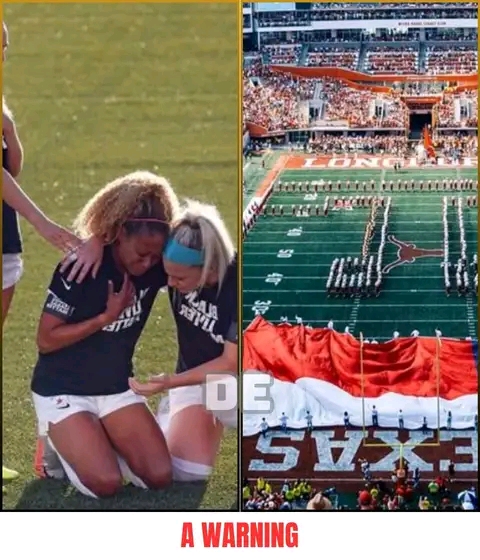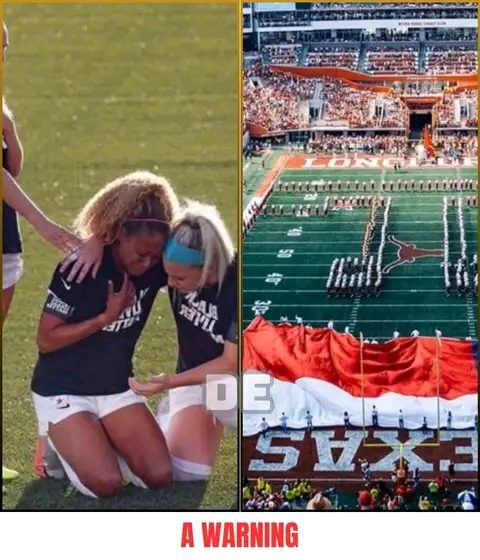NEWS
The truth about the story of revoking the scholarship of the athlete KNEELING: A WARNING (5 Anthem kneelers just lost their scholarship)

In recent weeks, the University of Texas (UT) has found itself at the center of a contentious debate following reports that scholarships were revoked for five athletes who knelt during the National Anthem. This protest, inspired by the actions of former NFL player Colin Kaepernick, was intended to highlight issues of racial injustice and police brutality. The incident has sparked widespread controversy, raising important questions about the balance between free expression and adherence to institutional policies within academic and athletic settings.
The act of kneeling during the National Anthem as a form of protest was first popularized by Kaepernick in 2016, aiming to draw attention to systemic racism. Since then, this gesture has become a symbol of resistance against racial inequalities, adopted by athletes at various levels. At UT, the athletes involved chose to kneel as a statement against ongoing social injustices, aligning themselves with a broader movement for racial equality.
UT’s decision to reportedly revoke the athletes’ scholarships has led to a polarized public response. Supporters of the athletes argue that their right to free expression should be protected, especially when addressing critical social issues. They contend that punitive actions against these students stifle free speech and undermine the university’s commitment to fostering a diverse and inclusive environment.
Conversely, critics argue that kneeling during the National Anthem is disrespectful to national symbols and to those who have served the country. They support the university’s stance, emphasizing that scholarships are conditional on adherence to team and institutional policies. This perspective holds that the athletes’ actions violated agreed-upon conduct, justifying the revocation of scholarships as an appropriate consequence.
Universities are traditionally seen as bastions of free thought and expression, providing a platform for diverse perspectives and dialogue. UT, known for its history of supporting diverse viewpoints, now faces scrutiny over whether its actions are in line with these values. The incident challenges the institution to navigate the complex terrain of upholding its policies while honoring its commitment to freedom of expression.
The reported revocation of scholarships has placed UT in a difficult position, as it must balance the enforcement of institutional rules with the rights of students to engage in political activism. This situation highlights a broader societal debate about the role of academic institutions in political and social discourse. Should universities act as neutral grounds where all forms of expression are protected, or do they have the right to impose restrictions to maintain order and respect for certain symbols and traditions?












